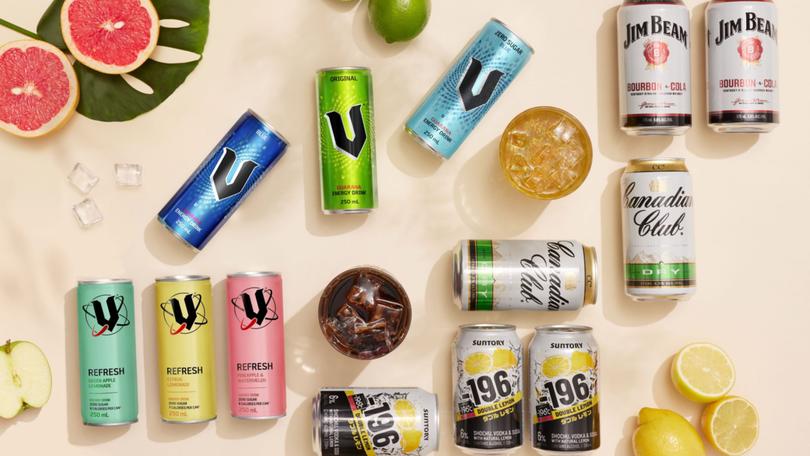Distillers call for freeze, overhaul of excise rules they say is cruelling growth opportunities
A global drinks giant has joined a tranche of smaller Australian distilleries in demanding changes to alcohol taxes which they say unfairly penalise spirits producers.

Global drinks giant Suntory has joined a tranche of smaller Australian distilleries in demanding changes to alcohol taxes which they say unfairly penalise spirits producers.
Distillers have told a Federal Parliamentary inquiry into Australia’s food and beverage manufacturing sector that the ability to export and for global and local producers to expand is being cruelled by the unfair tax regime. They want the spirits excise indexation frozen for two years ahead of a review into the tax.
“Direct foreign investment continues to be constrained by the unfavourable conditions of the Australian operating environment for spirits and spirits-based beverages,” Suntory Oceania told the inquiry in a submission.
Sign up to The Nightly's newsletters.
Get the first look at the digital newspaper, curated daily stories and breaking headlines delivered to your inbox.
By continuing you agree to our Terms and Privacy Policy.Founded in August last year, Suntory Oceania is a $3 billion local division of the Japanese empire and includes brands such as Jim Beam, Canadian Club whisky, Boss Coffee and Suntory 196, one of the most popular lemon-based premixed beverages.
It has also built a $400m carbon neutral processing facility in Ipswich, outside Brisbane, to expand in the region.
But Suntory reckons with Australia’s spirits excise being the highest in the world, the overall tax regime undermines opportunities for exports and to build brand reputation needed to succeed overseas.
Excise duty rates for alcoholic beverages vary depending on volume, alcohol content, product size and their product type — brandy for example attracts a different excise rate to others than exceed more than 10 per cent alcohol volume.
Industry group Spirits and Cocktails Australia explained the taxes per standard drink as 24¢ for wine, 41¢ for beer and $1.29 for spirits.
It reiterated that investors were chiefly concerned at Australia’s high excise tax, putting the nation at a “significant competitive disadvantage” against top exporters the UK, the US and France.
“While spirits account for approximately 20 per cent of total alcohol consumption, our sector pays more than 50 per cent of duties collected across alcohol categories,” it said, adding the spirits excise was the largest barrier to growth facing the industry.
Other independent companies, including well-known brands Archie Rose Distilling, have also called for a tax overhaul. It says there is immense export opportunity for Australian spirits but a lack of material support for international expansion made that difficult.
“These (tax) settings do not only impact Australia’s ability to effectively compete for global market share and investment, but also limit domestic competition with other categories of alcohol,” it said.
Archie Rose added that a 2021 increase in excise to $350,000 had been a game-changer for many smaller distillers, it had also disincentivised growth and had in effect become a ceiling in a developing industry.
The inquiry — by Victorian Labor MP Rob Mitchell — begins hearings on Thursday and continuing into next week.
Its hearings follow the Senate supermarket prices inquiry, which handed down its final report earlier this month. Major food and grocery manufacturers told that inquiry Australia was an increasingly unattractive place to do business, and many had considering offshoring their production.
“The public hearing will be an opportunity for the Committee to hear about industry needs and aspirations, and discuss what kind of support is needed for Australian food and beverage manufacturers to continue to innovate and grow,” Mr Mitchell said.
